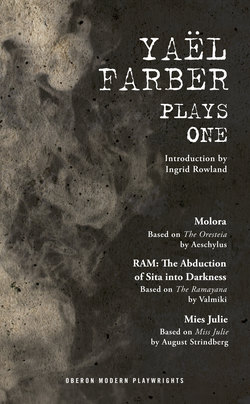Читать книгу Farber Plays One - Yaël Farber - Страница 8
На сайте Литреса книга снята с продажи.
ОглавлениеForeword
by Yael Farber, Director and Adaptor
‘This thing called reconciliation… If I am understanding it correctly…if it means this perpetrator, this man who has killed my son, if it means he becomes human again, this man, so that I, so that all of us, get our humanity back…then I agree, then I support it all.’
Cynthia Ngwenyu, mother of one of the murdered Gugulethu 7, when facing her son’s state-sanctioned murderer at the TRC
In the aftermath of South Africa’s transition into democracy in 1994, the world held its collective breath in anticipation of a civil war that would surely unleash the rage of generations shattered by the Apartheid regime. South Africa defied expectations, however, lighting the way forward for all nations trapped in quagmires of revenge. Despite the praise Nelson Mandela received from ‘First World’ leaders for heralding great restraint through this transition in our troubled land, nothing could convince those same leaders to check their own ancient eye-for-an-eye, knee-jerk response and their resulting offensives of ‘Shock and Awe’ on the women and children of Baghdad. South Africa’s relatively peaceful transformation was an extraordinary exception in our vengeful world
But such a journey is neither simple nor easy, and has little to do with the reductive notions of a miraculously forgiving Rainbow Nation or ‘turning the other cheek’. In the epic eye of South Africa’s storm, it was not the gods – nor any deus ex machina – that delivered us from ourselves. It was the common everyman and everywoman who, in the years following democracy, gathered in modest halls across the country to face their perpetrators across a table, and find a way forward for us all.
The ancient Oresteia trilogy tells the story of the rightful heirs to the House of Atreus, dispossessed of their inheritance. Forced to live as a servant in the halls of her own father’s house, Elektra waits for her brother Orestes to return from exile to the land of his ancestors and take back what is rightfully theirs. The premise of this ancient story was striking to me as a powerful canvas on which to explore the history of dispossession, violence and human-rights violations in the country I grew up in. I had long been interested in creating a work that explores the journey back from the dark heart of unspeakable trauma and pain – and the choices facing those shattered by the past.
Molora is an examination of the spirals of violence begat by vengeance, and the breaking of such cycles by the ordinary man.
In the long nights following the devastating attack on the World Trade Centre, amid the grief, recriminations and the Bush administration’s indiscriminate wielding of revenge, a fine white powdery substance gently floated down upon heart-broken New York.
Our story begins with a handful of cremated remains that Orestes delivers to his mother’s door…
From the ruins of Hiroshima, Baghdad, Palestine, Northern Ireland, Rwanda, Bosnia, the concentration camps of Europe and modern-day Manhattan – to the remains around the fire after the storytelling is done…
Molora (the Sesotho word for ‘ash’) is the truth we must all return to, regardless of what faith, race or clan we hail from.
